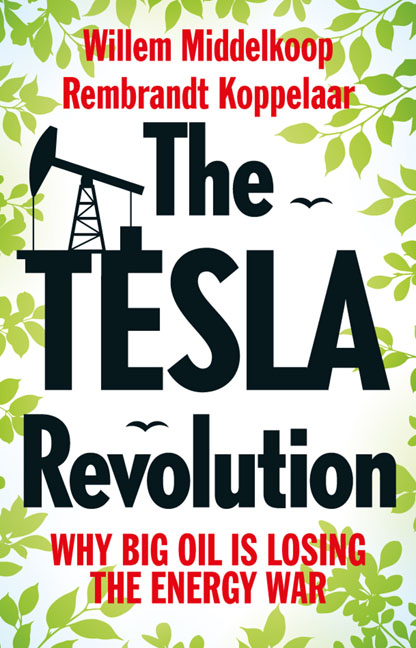Book contents
- Frontmatter
- Contents
- Prologue
- Special Introduction
- Chapter 1 The Tesla Revolution
- Chapter 2 A History of Fossil Fuel Dominance
- Chapter 3 The Petrodollar and the Geopolitics of Oil
- Chapter 4 Peak Oil Revisited: The End of Cheap Oil
- Chapter 5 Climate Change and the World of Energy
- Chapter 6 What Will the Energy Mix of the Future Be?
- Epilogue
- Appendix
- References Prologue
- Register
Chapter 1 - The Tesla Revolution
Published online by Cambridge University Press: 12 December 2020
- Frontmatter
- Contents
- Prologue
- Special Introduction
- Chapter 1 The Tesla Revolution
- Chapter 2 A History of Fossil Fuel Dominance
- Chapter 3 The Petrodollar and the Geopolitics of Oil
- Chapter 4 Peak Oil Revisited: The End of Cheap Oil
- Chapter 5 Climate Change and the World of Energy
- Chapter 6 What Will the Energy Mix of the Future Be?
- Epilogue
- Appendix
- References Prologue
- Register
Summary
For the last hundred years, gasoline engines have occupied the mainstream, but if you look forward a hundred years it will not just be gasoline, but diesel, electrics, plug-in hybrids and fuel cell vehicles. We don't yet know which will be chosen.
– Akio Yoyoda, 2016, CEO of Toyota CarsIt's very difficult to make hydrogen, store it, and use it in a car. If you get it from water using electricity it is extremely inefficient; it is about half the efficiency of using electricity directly. It is terrible. The best case hydrogen fuel cell doesn't win against the current case batteries.
– Elon Musk, 2015, CEO of Tesla MotorsAll the geniuses here at General Motors kept saying lithiumion technology is 10 years away, and Toyota agreed with us—and boom, along comes Tesla. So I said, ‘How come some tiny little California startup, run by guys who know nothing about the car business, can do this, and we can’t?’
– General Motors vice chairman Robert Lutz in 2007, saying that Tesla inspired him to push GM to develop the Chevrolet Volt.Introduction
In our world, it's all about energy. Cheap electricity has become the true backbone of our economy. We need cheap electricity 24 hours, 7 days a week. Society almost breaks down when power is lost. No TV, Internet, or air conditioning drives most people mad within a few hours. When the grid broke down in New Orleans after hurricane Katrina in 2005, even police were seen looting stores within 24 hours.
The availability of cheap electricity on a continuous basis is taken for granted in high-income countries. Large supply chains of cheap natural gas or coal ensure power plants are able to deliver cheap electricity 24/7. In less-developed countries, people are used to power outages. The majority of factories today operate on a 24/7 basis thanks to the automation of most processes combined with cheap electricity. The more interrupted the flow of electricity is, the more expensive electricity is. The restrictions are so severe that economies without such a constant flow of electricity are not able to expand and grow GDP per capita beyond $10,000–$15,000 per person.[1]–[3]
- Type
- Chapter
- Information
- The Tesla RevolutionWhy Big Oil is Losing the Energy War, pp. 27 - 84Publisher: Amsterdam University PressPrint publication year: 2017



